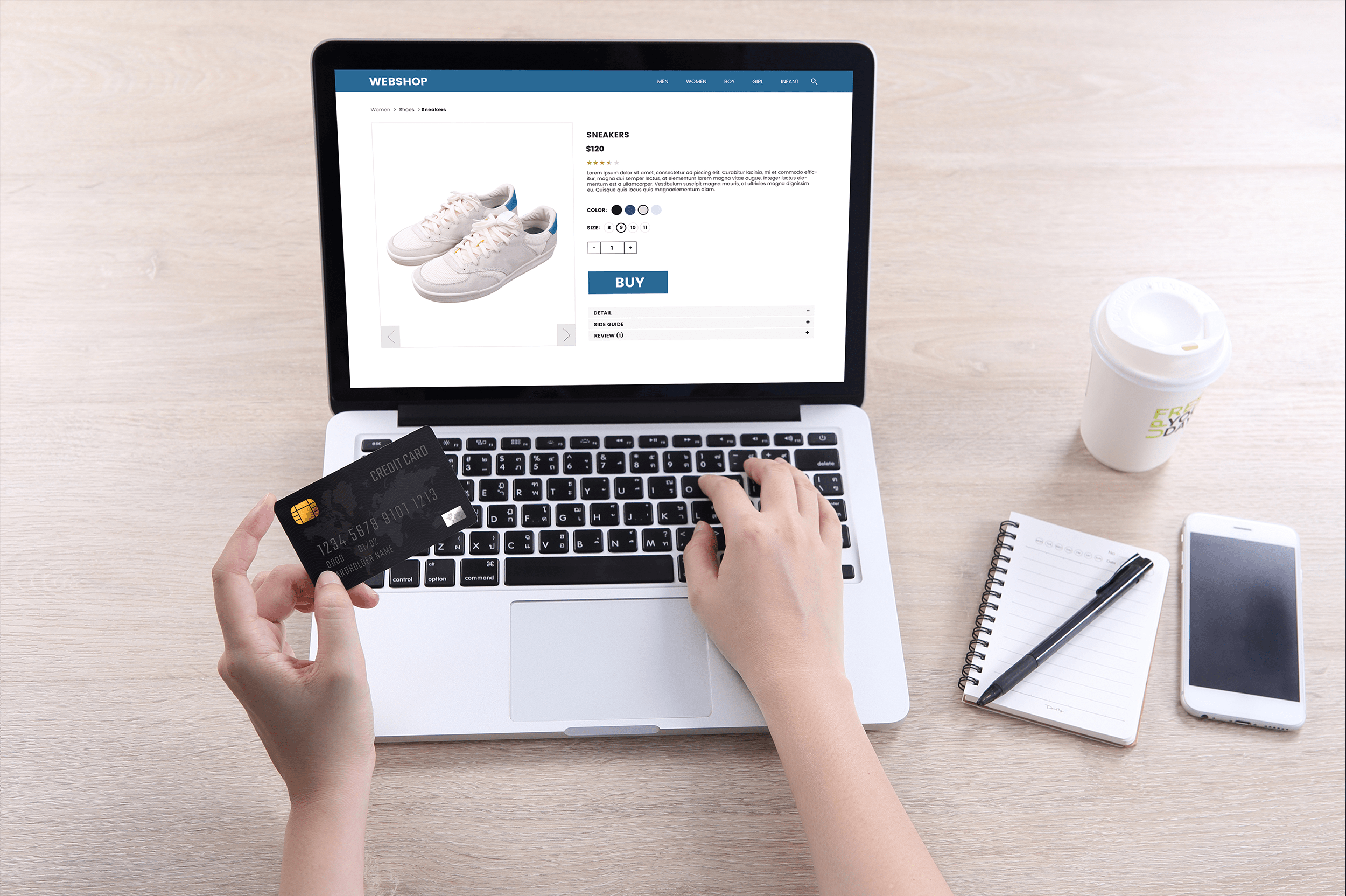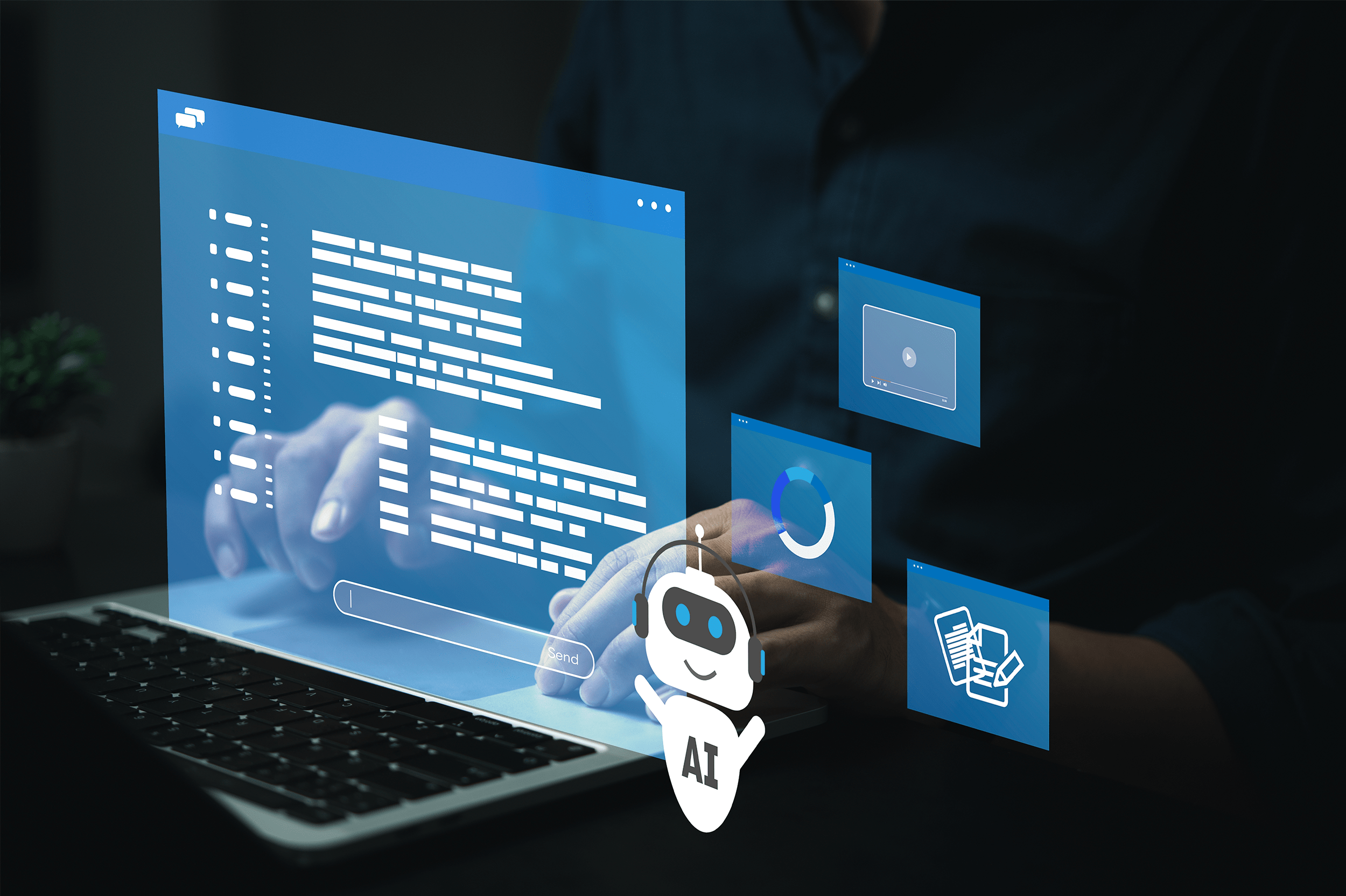Digital advertising, or online advertising such as cost-per-click campaigns can be highly effective and produce an impressive ROI, but gaining those benefits requires mastering the process of creating compelling ads, selecting the right keywords, and bidding the right amount. In other words, it takes some time and effort to learn the nuances and strategies for fine-tuning those variables to get the results you’re looking for. Automated bidding is a service available on Google Ads and some social media platforms (such as Facebook) that seems like it might be too good to be true: is automated bidding really a set-it-and-forget-it strategy to optimize your ad spend and maximize your conversions?
To learn more about automated bidding, how it can benefit your business, and when to use it (and when you shouldn’t), we reached out to a panel of digital advertising experts and asked them to answer this question:
“When should you use automated bidding?”
Meet Our Panel of Digital Advertising Experts:
Aaron Gray
Aaron Gray is the Co-Founder of NO-BS Marketplace.
“Automated bidding takes the guesswork out of setting bids, so you can meet your performance goals with the least amount of effort necessary. You should use automated bidding if you’re looking to save time and achieve your target Return on Ad Spend (ROAS). Automated bidding strategies such as target impression share and maximize conversion value bidding are designed to improve your online visibility and conversion rates, respectively. The former sets bids with the goal of showing your ad at the very top of the page, and the latter sets bids to get the absolute most conversion value of your campaign. For example, it might bid higher for auctions perceived to have greater conversion value. These fall under a subset of automated bid strategies called Smart Bidding; they learn over time and use information about a previous bid’s performance to inform bids in the future. Smart Bidding uses advanced machine learning to help you tailor the correct bid to each and every auction. By factoring in signals such as operating system, location, language, and even device, you can capture the full scope and unique context of every search.”
Sam Campbell
Sam runs the Digital Marketing blog Reddiquette, which is dedicated to helping advertisers increase their success on Reddit.
“There are a few times when you might want to consider using automated bidding for advertising. One is when you have a very tight budget and need to get the most out of your advertising dollars. Automated bidding can help you target your ads more effectively and ensure that you’re not spending too much on any one click.
Another time is when you’re launching a new campaign and need to get it up and running quickly. Automated bidding can help you set your bids quickly so that your campaign starts generating results as soon as possible.
And finally, if you’re not familiar with how different bid amounts correspond to changes in ad position or click-through rates, automated bidding can help smooth out the learning curve by doing all the number-crunching for you.
However, there are also a few times when automated bidding is not the best option.
One is if you’re looking to create a very specific target audience. With manual bidding, you can be more precise in your targeting.
Another reason to avoid automated bidding is if you have a lot of traffic coming from a very small number of sources. In this case, you might be better off setting your bids manually to avoid overspending on any one source.
Overall, automated bidding is a great tool to have in your arsenal, but it’s important to understand when and how to use it for the best results.”
Cale Loken
Cale Loken is a Business Consultant & the CEO at 301 Madison Consulting based in Minneapolis, US. They are an experienced digital marketing agency offering website development, search engine optimization (SEO), and social media management for businesses.
“Automated bidding is a Google Ads bid strategy that increases and improves results based on your set goals. You should use it when you want to maximize your website’s clicks, visibility, and conversion. Google automatically sets bid amounts by analyzing information such as a user’s device, operating system, and demographics.”
Leslie Gilmour
Leslie Gilmour runs the SEO agency Cube Digital that helps businesses, teams, and individuals with SEO strategy, processes, and implementation of their digital marketing plans.
“Automated bidding should be used on high-volume accounts. But it is key to use portfolio bid strategies and throw as much audience data at it as you can.
I implemented TROAS portfolio bid strategies on a big account (8 markets, 8 figure budget), and the results were great. I’ve had a ROAS improvement of +45% for three years straight.”
Christiaan Huynen
Besides founding the online design platform DesignBro in 2016, Christiaan also founded the London office of Cartils in 2008, an award-winning branding & packaging design agency that is well-known for its work for Pernod Ricard, Brown Forman, Carlsberg, and Nestle Waters, among others.
“You can use automated bidding to maximize conversions. Any company with a small or big budget that wants to acquire more customers can use it to its advantage. This is because it improves your brand visibility as well.
But there is always a risk of Google utilizing all the money in a single day for a high conversion rate. So, you need to accurately track the activity or you’ll never understand the true essence of the bidding strategy.
This is because it can reduce profitability. So, you can use Google Search and Display Networks to judge the automated bidding.”
Regan McGregor
Regan leads the marketing team at Vervoe, an AI-powered skill-testing platform that helps organizations hire the very best by focusing on who can do the job, not who looks good on paper. Regan’s passionate about growth marketing, especially for B2B SaaS products.
“The decision to use automated bidding comes down to three primary considerations being a) your goals, b) your data, and c) your budget. Consider your goals for the campaign, your primary metrics of success, and how much money you can invest.
For example, if you want to drive leads, you might optimize the number of conversions. However, if you’re running an ad to protect your branded terms, you might want to optimize for a target percent share of impressions.
Automation relies on enough data to feed machine learning algorithms to identify patterns and trends. Google says the minimum is 15 conversions in the last 30 days at the campaign level. However, I would say that 50 conversions are more realistic if you want automated bidding to have a chance of outperforming manual CPC.
It’s always a good idea to start with manual CPC to collect the data needed to inform a potential move to automated bidding, especially if you have a limited budget. In an industry like B2B SaaS, you might have limited search volume and not be able to reach enough conversions to switch. However, running an eCommerce site, this goal might be easy to achieve.
Suppose you still wanted to use automated bidding but lacked the conversion data. In that case, the other option is to automate a higher funnel metric like clicks or impression share as these metrics have higher quantities containing more data for machine learning algorithms.”
Grant Aldrich
Grant Aldrich is the Founder and CEO of OnlineDegree.com.
“Using both manual and automated bidding increases your conversions. Automatic bidding gives you a different kind of clientele. You set your CPC bid in automatic bidding, which increases your chances of being seen. By combining manual and automated bidding, you can reach more people with different marketing campaigns.”
Ross Miles
Ross Miles is the Digital Strategist at Onefeed, a digital agency that specializes in Google Shopping and Search Ads.
“Automated bidding is an ideal solution for SMEs that do not have a dedicated digital marketing resource or the budget to retain a digital agency to manage it on their behalf. By using an automated bidding strategy, smaller businesses can maintain online visibility and not over-burden existing employees with additional responsibilities outside of their skillsets.
On the flip side, accounts promoting tens of thousands of products (or more) over hundreds of campaigns can also benefit from some level of automation as the sheer scale of the management benefits from the assistance. In these instances, automation should be used judiciously to allow your analysts to focus their expertise to where it can have the maximum effect.
There isn’t a one-size-fits-all solution when it comes to digital marketing. Automation can offer benefits to both large and small businesses. However, if you have the capacity to manage campaigns manually, then there is a significant upside on the performance front. In my experience, automation often errs on the side of caution, while a more nuanced human touch can leverage opportunities that the data presents.”
Stephen Light
Stephen Light is the Co-Owner and Chief Marketing Officer at Nolah Mattress.
“If you’re clear on your campaign objective but having difficulty setting a bidding strategy to match it, setting automatic bidding can be hugely helpful in letting intelligent algorithms optimize for you. Manually entering individual bids – especially when you have multiple campaigns running – can be incredibly time-consuming, especially if you’re not exactly sure what’s best. Automatic bidding can save you precious time, and you can analyze the data after the fact to learn from the algorithm’s choices and build your own strong manual strategy.
The algorithm requires a foundation of accurate conversion data to do its job properly, so if you’ve run manual campaigns in the past and are confident in the data they produced, automated bidding is a solid next step. The great thing about automated bidding is that you can apply it at a smaller level than campaign-wide, instead choosing a few ad groups to automate while continuing to manually bid on the rest.”
Maria Juvakka
Maria Juvakka is the Founder of Chic Pursuit.
“I only use automated bidding at the beginning of my PPC strategy. Automated bidding can give you a real-time understanding of how much a keyword actually costs and if it’s popular. Using the data from these results allows me to delve further into my PPC bidding, saving money.”
David Wurst
David Wurst is the Founder of WebCitz, a full-service web design and digital marketing agency founded in 2004.
“One of the benefits of automated bidding is that it’s convenient in helping you achieve your campaign goals. It saves time because there’s no need to manually change the bids’ settings for specific ad groups or keywords. A good example is Google Ads, where you have the option to automatically set the bids for your ads based on how likely that ad is to get people to click on it or make a sale for your business.
Different automated bidding strategies can help you get more clicks, be more visible, and make more sales. Automated bids update themselves and use information about a bid’s performance and success rate to make better bids in the future.
Consider using automated bidding when trying to reduce your cost per click or increase conversions. Automated bidding can help target the right audience and prioritize which ads appear at the top of search results if the goal is to lower costs. Automated bidding may be a good choice for advertisers with:
- A limited budget and the need to get more clicks or calls within that budget
- Not a lot of time to monitor and manage a campaign
- A limited number of conversions, clicks, or calls per day
- A large volume of ad impressions and clicks from a relatively small number of keywords
- Many different types of keywords or search queries with different conversion rates or click-through rates (CTR)
- A goal to improve ROI from your AdWords account”
Roger Huang
Roger Huang is the Director of Growth Operations for Springboard, an online learning platform focused on tech industry upskilling and education.
“There are a few times when you should use automated bidding:
When you want to maximize your revenue per impression
Conversion value is not always the most lucrative option. For example, only paying $0.01 might be good for conversions, but it’s terrible for revenues (if no one clicks on my ad). So if I wanted to make more money per impression, I would set up my automated bidding to bid the highest amount possible, without it going over $X per impression.
When you want to spend your daily budgets evenly across your campaigns
This one is kind of interesting because usually, advertisers with big budgets don’t even care about this. But realistically, I think most accounts with less than $5,000 spend should probably bid evenly across their tiers. If you don’t, you’ll probably end up spending $700 in one ad group and nothing in another. Imagine the difference that would make to your performance reports.
So, if I wanted to spend my daily budgets evenly across my campaigns instead of focusing on conversions, I would set up an automated bidding strategy to bid evenly for me.”
Bryan Philips
Bryan Philips is the Head of Marketing at In Motion Marketing, a full-service marketing agency that helps transform businesses into brands people love.
“Use automated bidding when you regularly have budget left over at the end of the day. You can take advantage of that buffer by automating to maximize conversions. I’d recommend doing a four-week test before committing to it, as the initial results can be mixed. And don’t roll this out for your entire budget. Split your spend between this one and whatever you’d previously been using to see what works best.”
Mark Coster
Mark Coster is the co-founder and lead SEO specialist of the Australian digital agency FairyDigital. With 20 years of experience in science research, Mark brings an analytical view to achieving higher rankings, more traffic, and greater revenue for his clients.
“Automated or smart bidding is the poster child of conversion strategies that Google jacked up with machine learning to increase businesses sales and leads. But there are a few cases where you might be better off with manual bidding.
You see, smart bidding algorithms aren’t that good when it comes to small niches or industrial-specific niches. In those cases, the learning phase for smart bidding might take even more than two weeks. By the time its algorithm finishes learning, you’ll end up losing your conversion values by 40%.
But where smart bidding shines is in picking up the slack from manual bidding. When you’ve built up a foundation with manual bidding but feel stuck in your campaign, wondering if all those resources are wasted on a detached audience, this is the moment you switch to smart bidding. Leveraging Google’s resources and choosing any of smart bidding’s strategies, you can significantly increase the number of leads generated or site visits.”
Matt Lally
Matt is the Founder of MattyAds. He is the Silicon Valley marketing consultant to high-growth startups. He’s managed more than $100 million in digital advertising and is a former agency account director.
“Don’t automate your digital marketing too quickly or you could thwart your own growth. The digital marketing ecosystem has shifted dramatically in the past 5 years. Major advertising platforms like Google and Facebook are machine learning blackboxes. Marketers have been forced to adapt. Here’s my advice after managing more than $100 million in advertising spend:
You shouldn’t automate your bidding if you haven’t figured out the value of a customer. Setting a bid is easy. Understanding how much you should bid is hard. It can take months, even years, to figure out the lifetime value of a new customer. Rushing to use automated bidding is a mistake without first identifying your key performance indicator.
You shouldn’t use automated bidding if you don’t get conversion data often. Each ad platform is built on a different machine learning algorithm: Google wants 20 conversions a month, while Facebook demands 50 conversions a week. If your budget is too small or the cost to acquire is too large, you may not have sufficient data to use automated bidding strategies.
You shouldn’t use automated bidding if your conversions all come from brand marketing and remarketing. Look at your existing advertising funnel. If most of your conversions come from branded keywords or remarketing ads, your prospecting keyword or audiences likely won’t have enough conversion volume to bid automatically. It can be an expensive lesson to run automated bidding on low conversion volume tactics.”
Leanna Serras
Leanna Serras is the Chief Customer Officer of FragranceX.com.
“You should use automated bidding when you want to save time and have a defined objective in mind. For example, if you want to increase profits, you can use the Maximize Conversion Value option for automated bidding. This option looks at your potential profit margins and only gives you conversions that are above a certain threshold of value. Your campaign will be optimized to drive the greatest revenue within your chosen budget.”
Danni Winter
Danni Winter strategically develops and manages high-performance paid media and organic strategies to help Noble Studios‘ clients meet and exceed campaign goals. Danni holds a degree in Marketing and an MBA in Finance from the University of Nevada, Reno, and was recognized as a 20 Under 40 in Reno.
“When should you use automated bidding? Always. In the past, there were ways to get ahead by manual bidding, including budget control and response time. These days, automated bidding settings have become significantly more sophisticated to account for these concerns. Automated bidding learns as it goes through data signals and will make adjustments in real-time on a user basis rather than a keyword basis. There is no real way to compete with automated bidding as a human, so the best thing is to learn how to manage the automation to your advantage.”
Jordan Brannon
Jordan Brannon is the President and Co-founder of Coalition Technologies.
“Automated bidding only works once you’ve established enough baseline data (e.g., conversions, conversion value, conversion value per lead, etc.) upon implementing your initial strategy and setup. That is why the accuracy of tracking codes is crucial. Once around 15-20 conversions have been achieved within the past 28 days, then you can consider using automated bidding strategies.”
Nate Tsang
Nate Tsang is the Founder & CEO at WallStreetZen.
“I recommend automated bidding when you’re maximizing return on ad spend (ROAS). If you want to quantify what you’re getting back for every dollar spent, then Google’s algorithm can do that lifting for you, freeing up your time to focus on other marketing matters.
Some of the other algorithms just aren’t as mature as ROAS, likely because it’s such a popular category for users. We’ve all had the experience of paying for a marketing campaign or strategy that didn’t bring in results. Google wants to prove their automation can make that happen for you, which is why ROAS is such a good category to start with.”
Beau Pent
Beau Pent is the Sales Manager at GoCo.
“There are two times when using automated bidding is a good idea:
When you want to take advantage of budget opportunities in your account
I’ve seen this happen before. If one of your ad groups has a big budget and the others don’t, then the group with a high budget is going to have way better performance metrics. So, if I wanted to leverage that into an even higher Quality Score, I would set up an automated bidding strategy to make sure I was getting the most conversions per dollar AND maximizing my Quality Score.
When you want better performance without worrying about it
I think this is applicable for big advertisers who don’t have time to worry about individual ad groups throughout their campaigns. For them, setting up an automated bidding strategy that takes the lowest bid possible (no matter what the CPC is) seems like a good idea. After all, setting up an automation to make sure your budget isn’t wasted will always give you better performance than not doing that at all.”
David Morneau
David is a serial entrepreneur and CEO of Breeeze.co, an SEO services company that helps 20+ agencies and businesses succeed by providing SEO services that drive growth for their clients’ sites on Google and beyond.
“You can use automated bidding to improve target cost-per-acquisition. This is because it allows you to increase your conversion rate. For instance, Target CPA can optimize each acquisition to boost the number of shoppers becoming customers.
So, if you want to spend $1 on each conversion, it ensures the best results for search and display campaigns. But be sure to leave some wiggle room for a higher target CPA, as you don’t want to miss out on a valuable bidding opportunity.
Remember, you can’t use this automation for Google Shopping Campaigns.”
Rob Matthews
Rob is PPC Manager at Surge Marketing Solutions and specializes in PPC for eCommerce. He has years of experience within PPC and marketing and has managed accounts nationally.
“Automated bidding can be used for a variety of reasons. If you’re looking to reduce the time it takes for you to upload manual bids, then automated bidding will be the way forward for you. In addition, automated bidding is a great way to A/B test your ads as it will decide itself where to put money into what keywords depending on the evaluation of the campaign.
Here are three benefits to using automated bidding:
- Automated bidding takes the heavy lifting out of setting bids to meet performance goals. Unlike manual bidding, there is no need to continuously update bids for specific ad groups or keywords.
- Manual bidding can be time-consuming, whereas automated bidding ads are all set automatically.
- Automated bidding uses machine learning to evaluate many variables linked to performance, and over time, it will optimize for specific goals.”
Ayelen Osorio
Ayelen Osorio is a content editor for Netcoins, Canada’s first publicly owned crypto trading platform to be fully regulated. She is passionate about all things blockchain as well as community building.
“First, it’s worth noting that automation isn’t an all-or-nothing scenario. You can use automated bidding for one campaign and stick to manual for another. This is good since the benefits of using automated bidding might vary from one campaign to another.
For example, one of your top priorities for one campaign might be control, and you want to be fully involved in every part of your campaign. In that case, manual bidding is the option for you. But maybe for a different campaign, you’re struggling to develop a successful bidding strategy, or you don’t want to take the time to micromanage every individual bid. In that case, automated bidding could be a big help, particularly if you’re looking to boost your optimization score. Your decision also depends on the specific automated strategy you use. Google offers multiple automated bidding strategies, and different options allow for different results.”
Cary Hastings
Cary Hastings is the Head of Content at Bonsai.
“Automated bidding’s main purpose is to improve your campaign results by checking consumer behavior.
Automated bidding sets your bidding based on factual reports. Use automated bidding when:
- You want to increase the visitors to your sites: By using the Maximize Clicks, you automatically position your bids to get as many clicks to your sites as possible depending on your budget.
- You want to increase visibility: You can automatically set your bid to display your ad anywhere on the page using the Target Impression Share.
- You need more conversion: Maximize Conversion sets bids for you to get the major conversions for your campaign.”
Everyone wants to make the most of their time and automate repetitive and time-consuming tasks. Automated bidding is a smart digital advertising strategy when used in the right circumstances, but bidding isn’t the only process you can put on auto-pilot. Installing social media share buttons on your blog or website to get more exposure on social media, effortlessly. By enabling your visitors to share your content on their favorite social media platforms with a single click, it’s a win-win solution.




























